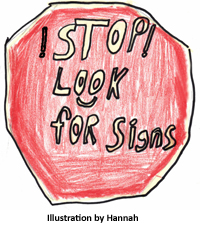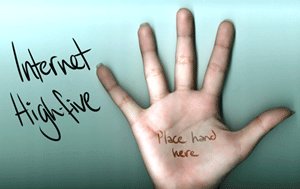 With school starting all across the nation, my posts the past few weeks have been devoted to calling attention to kids who need “a helping hand” as they begin the new school year. If you missed my previous posts on those kids, click onto these links: The New Kid in School, Kids With Special Needs, Kids Who are Overscheduled, Grieving Children.
With school starting all across the nation, my posts the past few weeks have been devoted to calling attention to kids who need “a helping hand” as they begin the new school year. If you missed my previous posts on those kids, click onto these links: The New Kid in School, Kids With Special Needs, Kids Who are Overscheduled, Grieving Children.
Today, I want to expand on grieving children; those children who have experienced a loss. Keep in mind that losses come in many shapes and forms, such as:
- being bullied at school or in the neighborhood
- not making the football team for the coming year
- a friend saying: “I don’t want to play with you anymore”
- being sick or the illness of a loved one
- having a family member in jail
- having a family member addicted to drugs or alcohol
- experiencing natural disasters
- witnessing school violence
- making a move to a new place
To shed light on the signs parents and educators need to be aware of a child in grief, may I introduce you to my special guest, Gail Johnson, a licensed professional counselor.
Gail has spent years counseling adults, children, and teens, so I wanted to do an interview with her to help us get an over-all picture of a child in grief, and how we might begin to help him. I was privileged to have Gail endorse my book, Helping Hurting Children: A Journey of Healing.
1. Gail, how did you come to choose counseling as your career field?
I began my career as a hairdresser. I was very interested in people and realized that if I really wanted to help people I needed to learn all I could. So, I left hairdressing, went to school and eventually became a Licensed Professional Counselor.
2. Tell us about your work in counseling families over the years.
Most of my work with younger children occurred when I worked at a school with P-K through 12th grade enrollment. I have also worked with at-risk children and adolescents, with adults in prison and with addicted teens and adults. Investigating their histories, I had the opportunity to see how these problems, particular problems of loss, followed the children on into their adult lives.
Divorce and abandonment were the two prevalent issues. Abandonment is a natural result of one parent leaving the home. However, the custodial parent is often so overwhelmed with his or her own loss that the child feels emotionally abandoned by them also.
Of course, there were other losses as well including death, moving, loss of friends and pets.
3. What are some of the behavioral signs that children and teens might exhibit that would indicate he needs help in dealing with a loss?
Look for changes from the norm. Expect some temporary regression in younger children. Their emotions will usually show up in their behavior and play. Monitor anger and aggression in older children and adolescents. Copious information is readily available on how children grieve at different developmental stages.
Children’s sadness and negative behavioral changes should gradually decrease over time. If those negative behaviors are extreme or do not gradually begin to get better, say two to six months, it may be time for an evaluation by a professional.
Some signs children may need help are:
- Appearing trapped in a grief stage, unable to move on
- Continuing to exhibit chronic psychosomatic health problems
- Displaying acting-out behaviors and bad school performance
- No decrease of bad dreams or other fearful behavior and anxiety
Get professional help immediately if the child becomes physically abusive to self or others as a means of coping with his anger and depression, or if there is suicidal ideation.
4. What advice can you give to parents, grandparents, foster parents, or any caring adult that they could use in helping a child in grief?
Invite children to talk about their feelings and let them know you are available when they want to talk. Reassure them that they will be taken care of.
If the parent must be unavailable for the child, like making funeral arrangements, etc., assign a loving adult to stay close to the child.
Keep to normal routines as much as possible.
Teachers and other adults interacting with the child need to be made aware of the situation.
Help children move from grieving to cherishing memories.
5. Final thoughts of your own that you would like to share with our readers.
Children’s grief needs to be acknowledged. They need to be involved in the grieving process and allowed to mourn in the company of relatives and peers. Issues of loss and grief are best worked through as they occur and not delayed to be worked out years later, if ever.
And that, my friends, is spoken by one who has spent her adult life counseling those who are hurting. I want to thank Gail for joining us and shedding light on this subject of losses and grief in children.
Are you seeing any of those behavior patterns in your child’s life that Gail described? Psalm 127:3 says: “Children are a heritage of the Lord.” God has given us a treasure when He gave us children, so let’s work together to help them.
Be sure to join Hannah and me right here again next Tuesday.
One last thing, would you please allow me to send a short message to Hannah, my granddaughter and illustrator:
“Hannah, I am so proud of you and I am so glad you are continuing this journey with me for the second year in a row!
You, too, are helping Hurting Children by faithfully helping your Nana get the message out each week.”
“High Five to You!”










